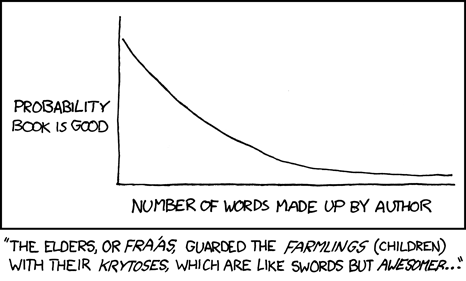I think same can be said about fighters if you wan't to go that way. There are barbarians and paladins.
I agree with this though. I dislike class names that are overly generic. I'm not sure if fighter would even still exist in d&d if not for it being rather iconic. They should rename it to
CRUSHMASTER.
Paladins
were a fighter subclass in d&d, as were barbarians.
Pathinder has cavaliers and all the archetypes including archer or gladiator.
Archetypes are just a renaming of subclasses and kits. Pathfinder 1e really has very few unique ideas, 2e is evidence as to why that was a good thing.
I think the issue with thief is that the name ssuggests a class non focused on combat. And computer rpg are combat oriented.
Well, yes, that's the implication.
A separate question is why every class in a party-based RPG must be good at fighting? Look at the most iconic example of a fantasy adventure: The Hobbit. Bilbo was a burglar, he was not particularly good at fighting, but he was extremely important for their overall success.
I disagree with the notion that cRPGs are entirely about fighting. There are typically classes whose main advantage is simply being good at dialogue in cRPGs, an example is the KotOR games(Jedi consular I believe?)
I see nothing wrong with having a class that is skilled in breaking and entering, getting you out of otherwise tough situations, and acquiring extra loot. All of these are important parts of cRPGs.
An example of a good non-combat class in an otherwise combat-only game is the antiquarian in Darkest Dungeon.
Oh, and burglar sounds a lot cooler than thief btw.
Think of Wizardry 8 vs 7. Thief in W7 was a very weak class, one redeeming thing was high starting skulduggery, but others could replace him. Then in W8 they made him a strong melee and at the same time renamed a rogue.
It would have been more interesting to make them better at non-combat roles than simply making them better at combat IMO.
As to your examples. Bards often already have their own class (D&D ... alongside rogues
Bards were a rogue before rogues were a class. They definitely are a type of rogue.
And swashbucklers, well that's in a way... a rogue
I agree, that was my argument.
I dislike overly broad classes. If you're going to use a class-based system, then they should be fairly specific. Using generic names for archetypes of classes is fine. A necromancer is more descriptive and interesting than "magic user", as is
CRUSHMASTER or archer to fighter.













